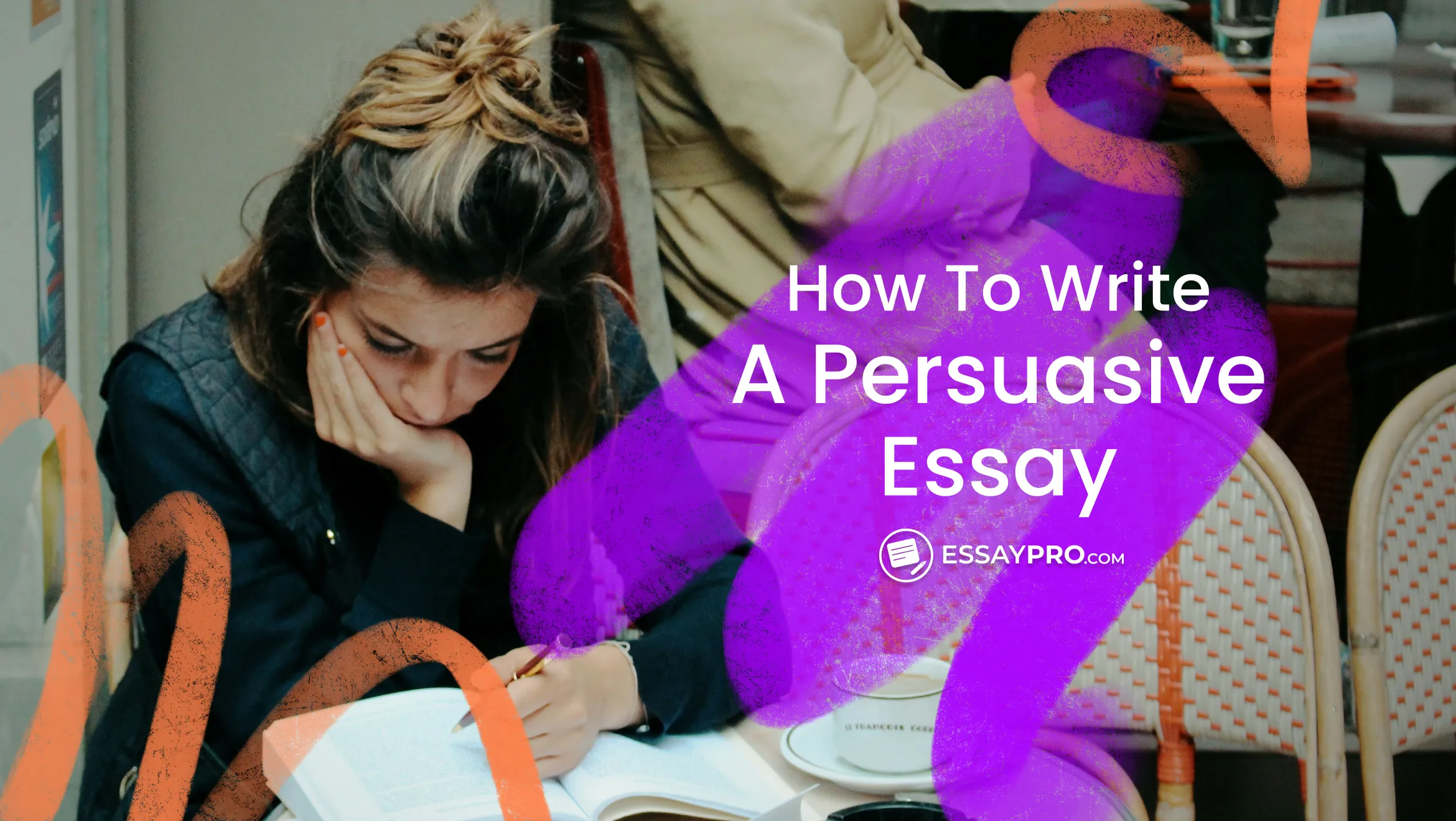Writer's block is a condition where a writer is unable to produce new work or experiences a creative slowdown. This isn't due to a lack of skill or commitment but often stems from psychological factors like stress or self-doubt. All types of writers, whether full-time professionals, academics, creative project workers, or students trying to finish assignments, can experience writer's block.
What you’ll find in this article:
- How to Get Rid of Writer’s Block – causes and quick solutions.
- Strategies to Overcome Writer’s Block – ways to get creative again.
- Psychological Approaches to Overcoming Writer’s Block – mental hacks to get past self-doubt and stress.
- Final Advice – key takeaways and long-term solutions.
How to Get Rid of Writer's Block
Writer's block can feel like a giant wall between you and your ideas. Luckily, here are strategies you can use to break through this challenge.
In this section, we break down common types of writer's block with actionable steps for overcoming them. So, next time you're staring at a blank page, you won't struggle to find an interesting opening anymore!
Overcoming the Challenge of Not Knowing Where to Start
When you sit down to write, and nothing seems to come out, it can feel like you're stuck in quicksand. The blank page can be intimidating, making it hard to find your footing. Fortunately, you can overcome this obstacle by breaking down the process into small, manageable tasks. Here are some tips for writer's block to help you find a starting place:
- Break Down the Assignment: Divide your writing task into smaller sections. Think about the introduction, body, and conclusion separately.
- Brainstorm Freely: Spend a few minutes jotting down any ideas that come to mind. Don't worry about order or perfection; the goal is to get your thoughts flowing.
- Freewriting: Set a timer for 5–10 minutes and write continuously without editing. This helps bypass the inner critic.
- Create an Outline: Organize your brainstormed ideas into a simple outline. Even a rough sketch of your thoughts can give you a clear direction.
- Set Small Goals: Aim to write one paragraph or even one sentence. Small steps make the task less overwhelming.
- Take a Break: Sometimes, a short walk or a cup of tea can reset your mind and spark new ideas.
Crafting an Engaging Beginning with a Topic and Outline
Even when you have a clear topic and a well-structured outline, starting your piece with an interesting hook can be challenging. An engaging beginning draws the reader in and sets the tone for your writing. If you're stuck at the start, consider these steps:
- Review Your Outline: Revisit your outline and look for the most compelling fact or angle about your topic.
- Brainstorm Hooks: Think of questions, anecdotes, or surprising facts related to your subject that might captivate your reader.
- Write Multiple Intros: Draft several opening sentences or paragraphs. Don't worry if they're not perfect; you can refine them later.
- Focus on the Reader: Imagine your reader's perspective. What would grab their attention right away?
- Use a Personal Touch: If applicable, share a brief personal story or insight to create a connection.
- Edit for Clarity: Once you have a few versions, pick the one that best aligns with your overall message and polish it.
When your paper needs a professional touch, buy essay crafted by experts who know their stuff!
Writing About a Topic That Doesn't Excite You
Sometimes, you're faced with a topic that simply doesn't spark your interest. Whether it's an assigned subject or a chosen one that feels dull, writing about something unexciting can be challenging. However, you can change your perspective with a few simple steps:
- Find a Personal Angle: Think about how the topic might relate to your own experiences or interests. Even a seemingly dull subject can have a personal twist.
- Research for Hidden Gems: Look for interesting facts, stories, or statistics related to the topic. Sometimes, new information can make the subject more engaging.
- Set Clear Objectives: Decide what you want your readers to learn or feel about the topic. A clear purpose can add direction and motivation.
- Brainstorm Creative Angles: Write down different ways to approach the subject. Consider how you might frame it as a story or a series of questions.
- Write in a Conversational Tone: Instead of a dry, academic style, try writing as if you're explaining the topic to a friend.
- Take Frequent Breaks: Give yourself permission to step away and come back with fresh eyes. This can help maintain your interest over long writing sessions.
Conquering the Fear of Writing the "Wrong" Thing
Worrying that you might write the wrong thing is a common fear that stops many writers from getting started. The pressure to be perfect can freeze your creativity. However, writing is a process that involves revision and growth. Here are some steps to help you overcome this fear:
- Embrace a First Draft: Remind yourself that the first draft does not have to be perfect. It's simply a starting point.
- Write Without Judgment: Allow yourself to write freely without worrying about correctness. You can always edit later.
- Set Realistic Expectations: Understand that every writer makes mistakes. Your first version is just a rough sketch of your ideas.
- Review and Reflect: After writing, take some time to review your work. Identify areas for improvement without harsh criticism.
- Seek Feedback: Share your work with a trusted friend or colleague. Fresh eyes can provide new insights and help build your confidence.
- Practice Regularly: The more you write, the more comfortable you will become with your process. Practice helps diminish the fear over time.
Improving Your Sentence Polish Without Overthinking
Many writers worry that their sentences aren't polished enough, which can lead to constant editing and a reluctance to move forward. While it's important to write clearly, getting bogged down by perfectionism can slow you down. Here are some steps to help you write freely and polish later:
- Focus on Getting Ideas Down: Start by writing your thoughts without worrying too much about perfect grammar or sentence structure.
- Use a Simple Language: Keep your sentences simple and straightforward. Complexity can often lead to confusion.
- Write in Stages: Concentrate on getting your ideas out first, then go back and edit for style and clarity.
- Read Aloud: Reading your work out loud can help you identify awkward sentences and improve flow.
- Set Aside Time for Editing: Allocate a separate session to revise your work. This helps you focus on ideas first and style later.
- Seek Constructive Feedback: Share your writing with others to get suggestions for improvement without being overly critical.
Staying Focused When Distractions Overwhelm You
In today's world, distractions are everywhere, especially when you open your computer to write. Emails, social media, and even background noise can steal your focus. If you find yourself easily distracted, try these steps to build a more productive writing routine:
- Create a Dedicated Workspace: Set up a quiet, comfortable area just for writing. This can help signal to your brain that it's time to focus.
- Eliminate Digital Distractions: Turn off notifications, close unnecessary tabs, and consider using apps that block distracting websites.
- Establish a Routine: Write at the same time each day. A regular routine can train your mind to get into work mode.
- Break Tasks into Chunks: Instead of writing for long, unbroken periods, work in short, focused sessions with scheduled breaks.
- Set Clear Goals: Define what you want to accomplish in each session. Small, achievable goals can help keep you motivated.
- Practice Mindfulness: Take a few deep breaths before you begin writing to clear your mind and center your focus.


Strategies to Overcome Writer's Block
Now that we've tackled common writing challenges let's explore some strategies to overcome writer's block, which often fuels creative paralysis.. These methods can help you maintain momentum in your writing process. Experiment with these techniques to discover what works best for you.
- Pre-Writing Techniques
- Establishing a Routine
- Embracing Imperfection
- Alternative Writing Methods
- Seeking External Input
Pre-Writing Techniques
Pre-writing techniques can jumpstart your creative process.
- Start with a brainstorming session where you jot down every idea that comes to mind, no matter how wild or unpolished. This free flow of thoughts can spark unexpected connections.
- Next, try mind mapping to visually organize these ideas. Place your main topic in the center and branch out into related subtopics. This method clarifies your thoughts and shows you how ideas connect.
Establishing a Routine
Establishing a writing routine can make a significant difference in your productivity.
- Set aside specific times each day for writing to build a consistent habit. When you commit to a regular schedule, your mind gradually adapts to focusing during these periods.
- Create a dedicated, distraction-free space where you feel comfortable and inspired. This environment might be a quiet corner of your home or a local library.
With a set time and place, you reduce the chance of interruptions and boost your concentration. Over time, this routine helps form a natural rhythm that makes writing easier, ultimately helping you overcome writer's block.
Embracing Imperfection
Embracing imperfection is key to overcoming the fear of not being perfect.
- Allow yourself to write a rough, unrefined first draft without worrying about mistakes. Understand that early drafts are meant to capture your ideas, not to be flawless.
- Once you have your ideas on paper, you can return later to polish and refine your work. This approach removes the burden of perfection and encourages a more relaxed and creative mindset.
Alternative Writing Methods
Alternative writing methods can break the monotony of a traditional writing process.
- Try freewriting, where you write continuously without worrying about grammar or structure; this encourages uninhibited expression.
- If you find typing stifling, consider using dictation or recording your ideas verbally.
- Speaking your thoughts can sometimes unlock the creativity that remains hidden when you write manually.
These methods help you capture ideas quickly and naturally, bypassing self-imposed constraints.
Seeking External Input
Seeking external input can provide fresh perspectives. Engaging with others not only enriches your writing process but also creates a sense of community.
- Joining a writing group allows you to share your work and receive constructive criticism from fellow writers. This supportive environment can boost your confidence.
- Consulting with mentors or writing coaches offers expert guidance tailored to your needs. They can help you identify strengths and areas for improvement that you might overlook.
Check out our essay abstract example and see how it's done.
Psychological Approaches to Overcoming Writer's Block
Psychological approaches to overcoming writer's block focus on reshaping your mindset and reducing inner stress. Instead of fighting the blank page head-on, these methods address the emotional and cognitive barriers that block creativity. Below are two key strategies that illustrate this approach:
1. Cognitive Behavioral Strategies
Cognitive Behavioral Strategies help you change the way you think about writing.
- Challenge Negative Thoughts: When you catch yourself thinking, "I'm not a good writer," pause and reframe those ideas. Question if they are really true.
- Set Realistic Goals: Rather than expecting perfection, break your work into small, achievable steps. Focus on one paragraph or idea at a time.
These simple steps can shift your focus from fear and doubt to steady, confident progress. The goal is to build a mindset that welcomes each small achievement, turning writer's block into a temporary challenge you can overcome.
2. Mindfulness and Relaxation Techniques
Mindfulness and Relaxation practices create a relaxed state of mind and allow you to remove the mental clutter that often leads to writer's block.
- Practice Meditation: Spend a few minutes each day in meditation or deep breathing to clear your thoughts. This simple habit can lower stress and improve concentration.
- Engage in Calming Activities: Find activities like a quiet walk or listening to soft music that help maintain mental clarity.
When your political science feels more complicated than a congressional bill, our political science essay writing service can help make sense of it all.
Final Advice
To wrap things up, here are three main strategies for overcoming writer's block:
- Use brainstorming and mind mapping to kickstart your ideas and organize your thoughts.
- Set a specific time for writing and create a distraction-free space to build a steady habit.
- Practice meditation or other calming activities to reduce anxiety and clear your mind for creativity.
Remember, writer's block is just a temporary hurdle. With these strategies, you'll be better equipped to tackle any blank page that comes your way. And if academic tasks ever get too overwhelming, simply ask our writers for help.
Still Stuck Staring at a Blank Page?
Our experts can give you the nudge (or full-on push) you need to get that essay done.
What Is Writer's Block?
Writer's block is the inability to produce new content or ideas despite wanting to write. It can affect anyone, from students to professional authors, and is often caused by stress, self-doubt, or lack of inspiration.
How to Get Over Writer's Block?
Overcoming writer's block involves techniques like brainstorming, setting a writing routine, and practicing mindfulness to reduce anxiety. Embracing imperfection and seeking feedback from others can also help reignite creativity and make writing feel more manageable.
What Is the Cause of Writer's Block?
Writer's block is often caused by psychological factors like fear of failure, perfectionism, or self-doubt. It can also result from burnout, lack of inspiration, or external pressures, such as tight deadlines or high expectations.
How Long Does Writer's Block Usually Last?
The duration of writer's block varies widely. For some, it may last a few hours or days, while for others, it can persist for weeks or even months. The length largely depends on the underlying cause and how it's addressed.

Daniel Parker
is a seasoned educational writer focusing on scholarship guidance, research papers, and various forms of academic essays including reflective and narrative essays. His expertise also extends to detailed case studies. A scholar with a background in English Literature and Education, Daniel’s work on EssayPro blog aims to support students in achieving academic excellence and securing scholarships. His hobbies include reading classic literature and participating in academic forums.
Writer’s Block | University of Illinois Springfield. (n.d.). Www.uis.edu. https://www.uis.edu/learning-hub/writing-resources/handouts/learning-hub/writers-block
Writer’s Block | Writing Advice. (n.d.). https://advice.writing.utoronto.ca/general/writers-block/






